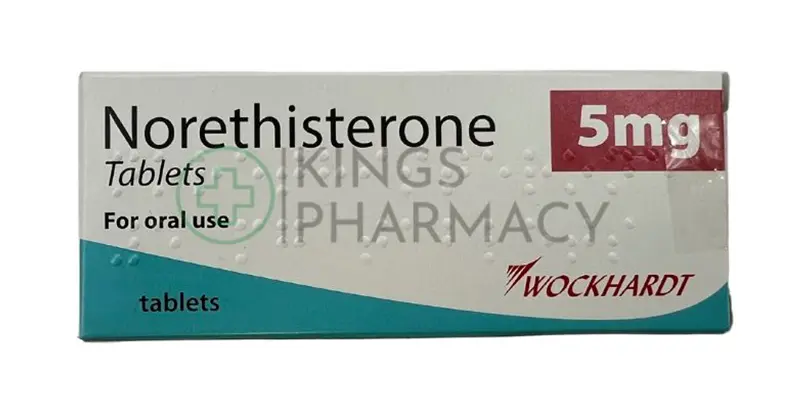Norethisterone
Norethisterone is a synthetic hormone used to delay periods for medical or lifestyle reasons. Taken orally, it mimics the actions of progesterone, preventing the shedding of the uterine lining. This delay allows individuals to postpone menstruation temporarily. Norethisterone is prescribed under medical guidance and can be a helpful option for managing menstrual cycles during important events or travel plans.
Select Strength
When taken, norethisterone helps maintain the lining of the uterus, preventing the normal shedding that occurs during menstruation. By keeping hormone levels stable, it effectively postpones your period for a short period.
How to Take Norethisterone
- Dosage: Follow your healthcare provider's instructions regarding the dosage and timing. Typically, you may start taking it a few days before your expected period.
- Duration: It is usually recommended to take norethisterone for a maximum of two to three weeks to delay your period.
- Administration: Take the tablet with water, with or without food, as directed by your doctor.
Possible Side Effects
While norethisterone is generally well-tolerated, some patients may experience side effects, including:
- Nausea
- Headaches
- Mood changes
- Breast tenderness
- Irregular bleeding
If you experience severe side effects or signs of an allergic reaction, contact your healthcare provider immediately.
Important Considerations
- Medical History: Inform your doctor about your medical history, especially if you have a history of blood clots, liver issues, or certain cancers.
- Pregnancy and Breastfeeding: Do not use norethisterone if you are pregnant or suspect you may be. Discuss breastfeeding with your doctor, as this medication may not be recommended.
- Interactions: Inform your doctor about any other medications or supplements you are taking to avoid potential interactions.




